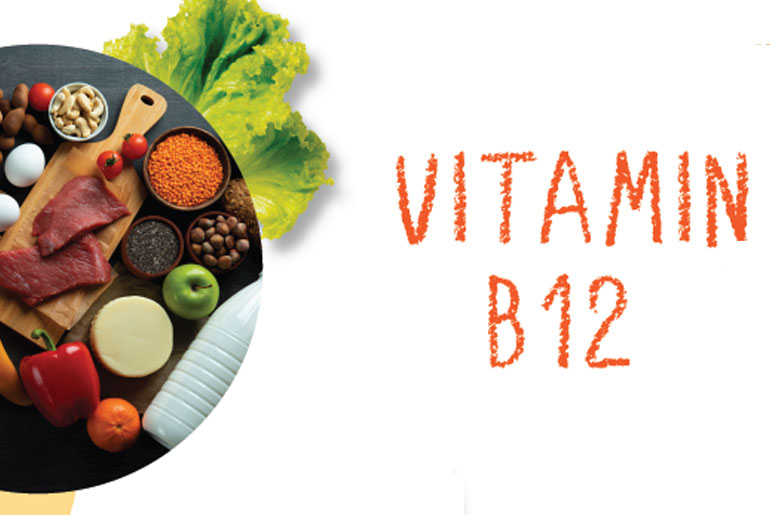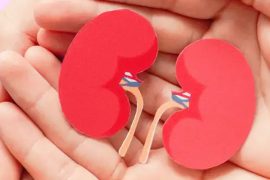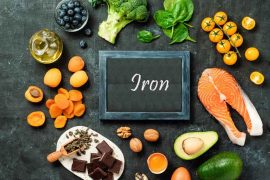Vitamin B12 is an essential water-soluble vitamin that plays a crucial role in the production of red blood cells. It is necessary for the proper functioning of the nervous system and the synthesis of DNA. A deficiency in vitamin B12 can lead to anemia, fatigue, and nerve damage. It is primarily found in animal products like meat, fish, eggs, and dairy, making it important for individuals on vegetarian or vegan diets to seek alternative sources or supplements to meet their B12 needs.
How the Body Absorbs Vitamin B12 from Food
The absorption of vitamin B12 from food is a complex process that involves several steps:
- Release from Food: When you consume food containing vitamin B12, the vitamin is initially bound to proteins in the food. In the stomach, hydrochloric acid and enzymes help release the vitamin from these proteins.
- Binding to Intrinsic Factor (IF): Once vitamin B12 is freed from food proteins, it binds to a glycoprotein called intrinsic factor (IF), which is produced by cells in the stomach lining. The B12-IF complex is essential for the absorption process.
- Transport to the Small Intestine: The B12-IF complex travels from the stomach to the small intestine, specifically the ileum, where specialized receptors on the intestinal cells recognize the complex and facilitate its absorption into the bloodstream.
- Absorption into the Bloodstream: Once inside the intestinal cells, vitamin B12 is transported through the bloodstream, where it binds to another protein called transcobalamin II (TCII). This protein helps carry the vitamin to various tissues and organs, including the liver, where B12 is stored for future use.
How to Increase the Absorption of Vitamin B12
To ensure optimal vitamin B12 absorption, several strategies can be employed:
1. Optimize Stomach Acid Levels:Since vitamin B12 is released from food by stomach acid, ensuring proper acid production is key. Low stomach acid (which may occur due to aging, stress, or certain medications) can impair vitamin B12 absorption. To support stomach acid levels:
- Avoid excessive use of acid-reducing medications like proton pump inhibitors (PPIs).
- Eat foods that support stomach health, such as ginger, apple cider vinegar, and fermented foods.
2. Ensure Adequate Intrinsic Factor Production: Intrinsic factor is critical for B12 absorption. If your stomach lining or IF production is compromised (such as in conditions like pernicious anemia), B12 absorption can be impaired. In such cases, B12 injections or high-dose oral supplements may be needed, as they bypass the need for IF.
3. Avoid Alcohol Consumption: Excessive alcohol consumption can damage the cells in the stomach and intestines that produce intrinsic factor, impairing vitamin B12 absorption. Reducing alcohol intake may improve the body’s ability to absorb vitamin B12.
4. Eat Foods Rich in Vitamin B12: Include a variety of animal-based sources of vitamin B12 in your diet, such as:
- Meat (beef, chicken, turkey)
- Fish (salmon, tuna, mackerel)
- Eggs
- Dairy products (milk, cheese, yogurt)
For vegetarians or vegans, fortified foods (such as fortified cereals, plant-based milk, or nutritional yeast) or B12 supplements may be necessary.
5. Take Vitamin B12 with a Meal:
Taking vitamin B12 supplements along with meals can enhance absorption. This is because food stimulates the production of intrinsic factor and stomach acid, both of which are crucial for B12 absorption.
6. Maintain a Healthy Gut: Since the small intestine is where B12 absorption occurs, maintaining gut health is vital. Probiotics and prebiotics can help balance gut bacteria and improve nutrient absorption. Additionally, treating gut issues such as celiac disease, Crohn’s disease, or irritable bowel syndrome (IBS) can prevent malabsorption of B12.
7. Supplementation (if Necessary): For individuals who have difficulty absorbing B12 from food due to digestive issues or dietary restrictions, supplementation can help. Sublingual B12 supplements (which dissolve under the tongue) and B12 injections are more easily absorbed than oral pills for those with severe absorption issues.
8. Consider Age-Related Factors: As people age, their ability to absorb vitamin B12 may decrease due to reduced stomach acid production. Older adults should consider B12 supplements or fortified foods, as absorption efficiency declines with age.
9. Limit Medications that Affect Absorption: Some medications, such as metformin (for diabetes) or antacids, may interfere with B12 absorption. If you’re on such medications, talk to your healthcare provider about B12 supplementation.
Vitamin B12 absorption is a multi-step process that requires proper stomach function, the production of intrinsic factor, and a healthy gut. By ensuring a healthy digestive system, consuming B12-rich foods, and using supplements when necessary, you can enhance your body’s ability to absorb vitamin B12 efficiently. If you experience symptoms of B12 deficiency, such as fatigue, numbness, or difficulty concentrating, it’s important to consult with a healthcare provider for proper evaluation and treatment.
Disclaimer:
The information contained in this article is for educational and informational purposes only and is not intended as a health advice. We would ask you to consult a qualified professional or medical expert to gain additional knowledge before you choose to consume any product or perform any exercise.








